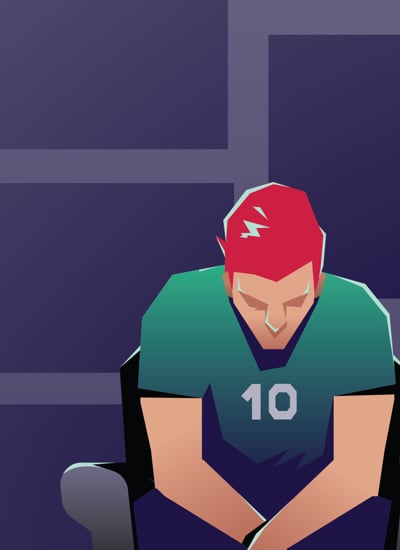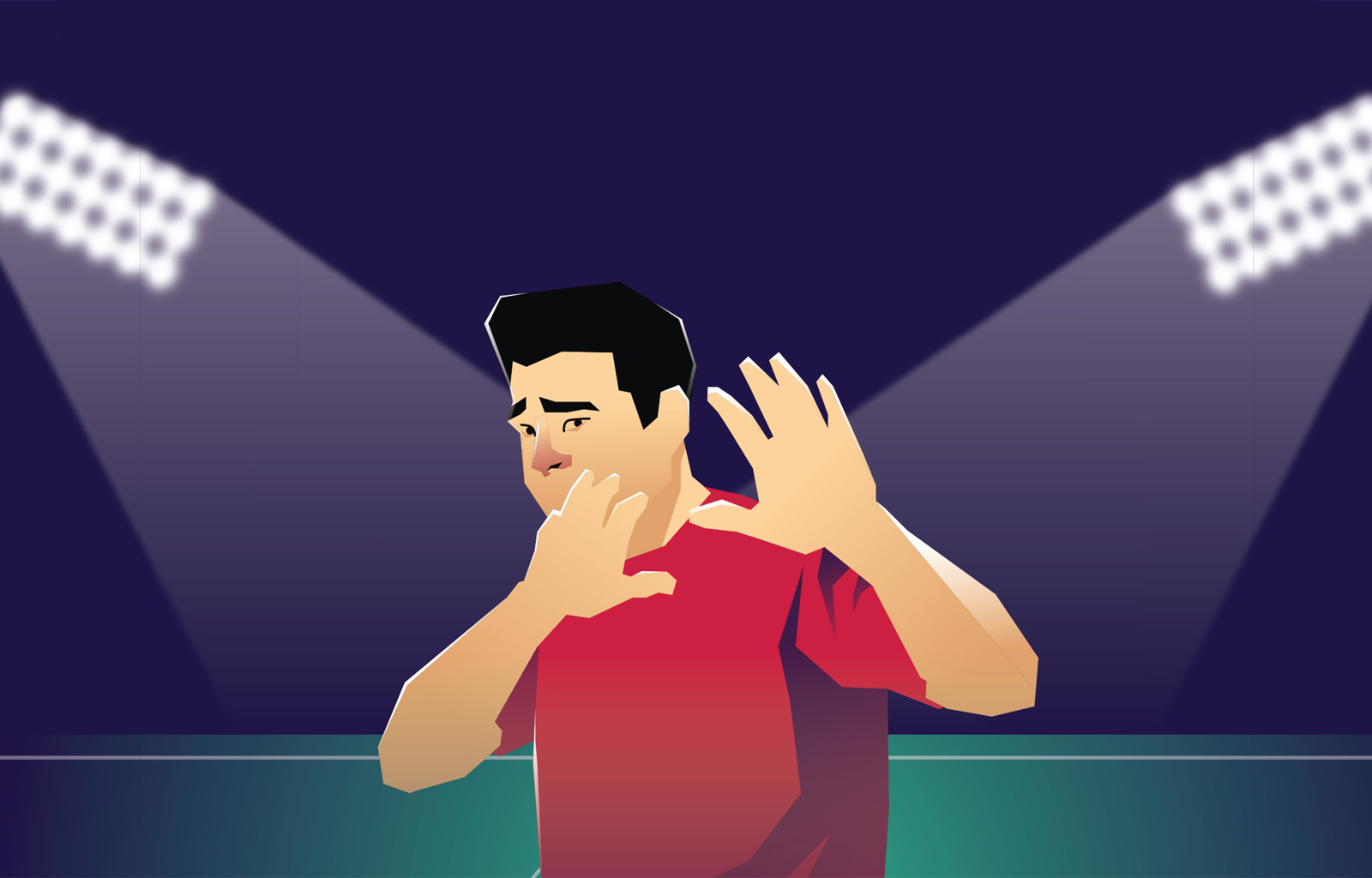
The difference between Mental health and wellbeing
Mental health includes your emotional, psychological and social wellbeing. It affects how you think, feel and act. It also helps determine how you handle stress, relate to others and make choices. Mental health is important at every stage of life, from childhood and adolescence through adulthood.
Wellbeing can be defined as the balance point between a person’s resources and the challenges they face. When there is an imbalance and the challenge is greater than the resources, the wellbeing of a person will decrease. When the resources are greater than the challenges, a person can have increased feelings of wellbeing.
Ensuring that players are looking after their overall wellbeing is vital for dealing with the ups and downs of being a football player.
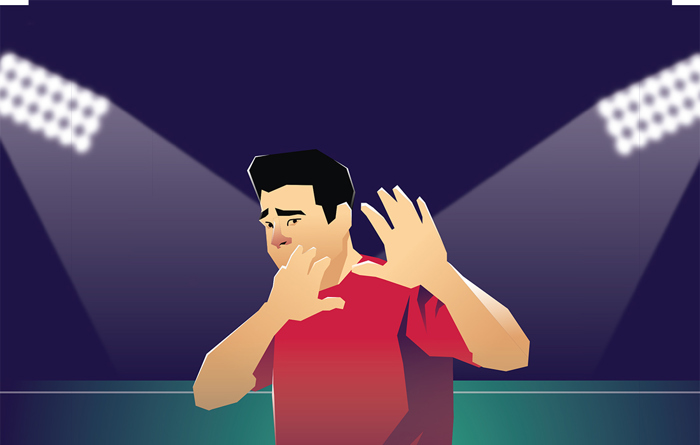
Mental health problems
Mental health problems relate to adverse/abnormal thoughts, feelings, moods and/or behaviour that might lead to functional (daily life, work, sport) problems.
Adverse/abnormal thoughts
Examples include: excessive self-criticism, low self-esteem, pessimism, hopelessness and problems with concentration, focus or memory.
Adverse/abnormal emotions
Examples include: irritability, anger, mood swings, sadness, extreme disappointment that you just cannot shake off, depression, loneliness, emptiness, lack of passion and lack of motivation.
Adverse/abnormal behaviours
Aggression, withdrawal from others, not going out as much, being a lot quieter than usual and an unexpected drop of performance are some examples.
Mental health problems
Examples of mental health problems are feelings of distress, anxiety, depression, sleep disturbance, and alcohol abuse. Among professional footballers, the prevalence of mental health problems ranges from 9% for adverse alcohol use to 38% for anxiety/depression. The majority of professional footballers mention that mental health problems influence their football performances negatively (e.g. Concentration, reaction time, coordination) while adequate support is lacking.
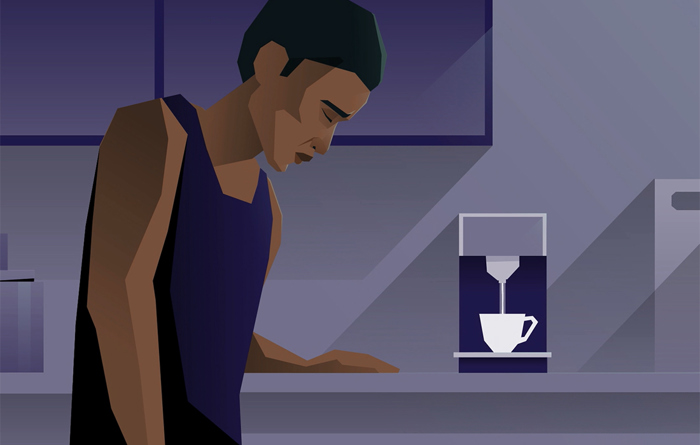
Examples of Mental Health problems
Distress
A state of emotional stress associated with unpleasant feelings or emotions that impact your level of functioning.
Anxiety
A feeling of worry, nervousness or unease about something with an uncertain outcome.
Depression
A mental health disorder characterised by a persistently depressed mood or loss of interest in activities, causing significant problems in daily life.
Sleep disturbances
Sleep disorders involve issues with the quality, timing and amount of sleep, which cause problems with functioning during daytime.
Alcohol abuse
Alcohol misuse describes alcohol consumption that puts individuals at an increased risk of adverse health and social consequences. It is defined as excess daily consumption, or excess total consumption, or both. Moreover, misuse is also defined as behaviour which includes risky (excessive) alcohol use, alcohol abuse, or alcohol dependence.
Disordered eating
Disordered eating is a term used for unhealthy eating behaviours and worries about body image. Some of the most common types of disordered eating are restrictive eating, self-induced vomiting, binge eating, and laxative abuse.
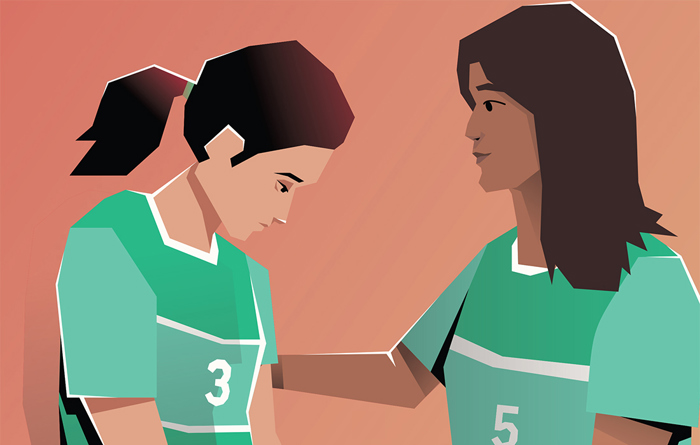
Stress and stressors
Stress
Stress is the body’s reaction to any change that requires an adjustment or response. Stress can be a result of changes in the environment, in the body or mind. The body reacts to these changes with physical, mental and emotional responses. Also, positive life changes such as a new contract, winning a major title or the birth of a child can produce stress.
Stress is a normal part of life. The human body is designed to experience stress and react to it. Stress can be positive as it keeps a person alert, motivated and ready to avoid danger if needed. Stress becomes negative when it accumulates and not being coped with adequately. For instance, when facing continuous challenges without relief or relaxation in between, or when exposed to major stressors, stress might lead to mental health problems.
Stressors
A stressor is any event or experience that causes stress in an individual. Some common stressors include the death of a loved one, a divorce or the end of a relationship, a change in financial status or relocation (i.e. Change of residence). Some common football related stressors include a severe injury, performance pressures and a strained relationship with coach or teammates.

